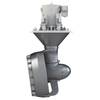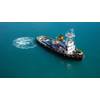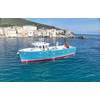DOE Funds Research on Alternative Biofuels
Tomorrow, the National Marine Manufacturers Association (NMMA) kicks off a third summer season of alternative biofuel testing in an effort to further advance marine engine technology and find an alternative to fuel containing more than 10% ethanol as a result of its damaging effects on marine engines.
The tests are funded by the Department of Energy which released a 2011 report on engines using E15 revealing performance issues like stalling, corrosion leading to oil or fuel leaks, increased emissions and damaged valves, rubber fuel lines and gaskets. These results reinforced the recreational boating industry’s concern that E15 is not a suitable fuel for boat engines.
Although the Environmental Protection Agency has approved the use of E15 for model year 2001 and newer cars and trucks, the boating industry has found that fuel containing more than 10% ethanol causes severe damage to boat engines. While marine engines are not currently approved by the EPA for use with E15, misfueling at the pump is a danger for boaters unaware that E15 is not compliant with boat engines.
What: The tests, in conjunction with the American Boat and Yacht Council (ABYC) and Evinrude, are part of ongoing research conducted by the recreational boating industry, to explore the alternative biofuel isobutanol in response to the U.S. introduction of gasoline containing fifteen percent ethanol, commonly referred to as E15.
Where: Washington Marina
1300 Maine Ave, S.W.
Washington, D.C. 2002
When: June 6, 2012 from 9:00 a.m. to 4:00 p.m. EST
Why: In 2011 and 2012, NMMA and its partners, conducted initial testing on isobutanol, revealing that it could be a promising alternative to E15. This year, the team is following up on preliminary laboratory investigations which indicated that a combination of three fuels, including eight percent isobutanol, five percent ethanol and gasoline, can achieve larger quantities of biofuel while inhibiting the negative effects of ethanol which include corrosion, low energy content and high Reid vapor pressure (RVP.)
Isobutanol has been shown to produce no more emissions than pure, EPA-approved test gasoline, while producing 30 percent more energy than ethanol. What’s more, the DOE has designated isobutanol a "drop-in fuel," meaning it can be used to displace petroleum under the Energy Independence and Security Act of 2007, and increasing its use could help reduce greenhouse-gas emissions.
In addition to evaluating new alternative biofuels for marine engines, NMMA’s testing will be used by the auto industry, small engine industry, food industry and other members of the Smarter Fuel Future coalition to further develop alternatives to E15. Learn more on the alternative biofuel efforts of NMMA and these other industry groups at SmarterFuelFuture.org.
www.nmma.org













